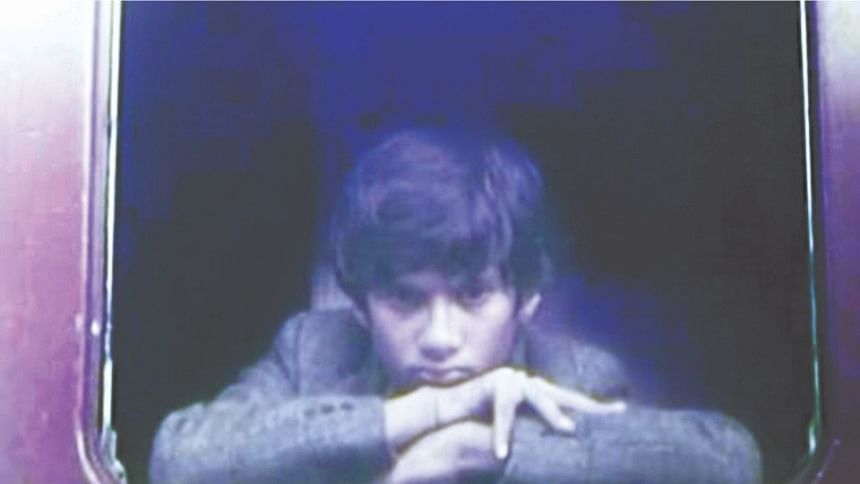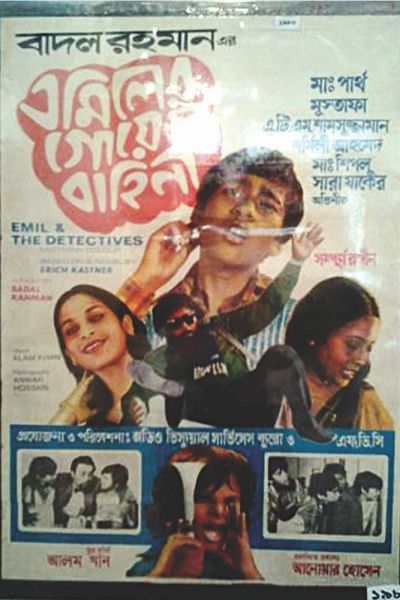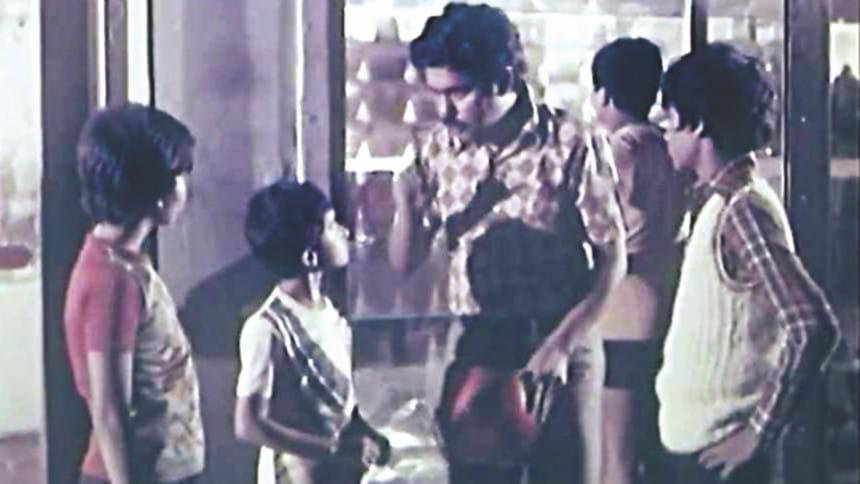A Montage of Young Scouts

Emil Erich Kästner was a German author of the 20th century. Around the time of the Nazis, Erich's writings were widely criticised by the then Hitler government. His writings were being banned and Erich soon reached a dilemma on how to reach his readers. For a solution to this problem, the writer thought that the best way to reunite Germany was to have an impact on children. Thus, he wrote the book, 'Emil and the detectives.' It escaped past the Nazi censorship and became one of the most widely recognised novels in the world. In later years, the novel was adapted for cinema by various countries. Now one might wonder, why we should be thinking about a certain German novel and its adaptations.
This novel was also adapted by our country and created Bangladesh's first children's film, named Emiler Goyenda Bahini.
The film was produced in 1980, and was funded by the Bangladesh government. The late Badal Rahman was the director, accompanied by famous cinematographer and photographer Anwar Hossain as the director of photography. The cast included Golam Mustafa, Sharmili Ahmed, A T M Samsuzzam, Reyaz Sharif, Master Partha, Sara Zaker and others. The film won five awards in the 1980 National Film Award.

Though Erich's original text was based in Berlin, Emiler Goyenda Bahini told the story in a Bangladeshi context. The story revolves around Emil (played by Master Partho), who discovers that he won the first place in a renowned essay competition. To claim his prize, he travels from Khulna to Dhaka. While on his journey, the 500 taka he had with him gets stolen. To find the thief, he pairs up with Tripti, who he meets in Dhaka. Emil, along with Tripti and his friends, goes after the crook and soon finds out that the crime is much bigger than stealing the 500 taka.
Anyone who saw the film would recognise Badal Rahman's outstanding scripting. Even as a children's film, the movie created many layers of messages. For example, one can look at the first scene of the film, hanging from his window, young Emil meets a bird-seller crossing the road. In the conversation he, demands that the seller free the bird at once and almost pressures him to do so. At the first glance of this movie the audience gets a message of animal cruelty and how a child's stand should be on this topic. The movie also deals with other social and political aspects as well. In the film, when Emil is asked by the policeman what his father does, Emil replies that his father was killed by Rajakars (war criminal) in 1971. At that time Rajakar was something which could not be said out loud due to the political situation of the country. But Badal Rahman did the job of getting these messages through. Even the sound of the gun fire when a certain war criminal comes as the chief guest in Emil's mother's (played by Sara Zaker) office portrays the countries reality at that time, and can be considered very brave moves.

Another brilliant approach of Emiler Goyenda Bahini is its comical timing. The film all around is somewhat hilarious. Even the background score takes this humour to another level. One vital character who owns the film is none other than the 'Mama'. This maternal uncle of one of Emil's friends gets so much into detective books that he starts to think of himself as a detective. Though he is an adult man, the taste of adventure gets him into Emil's detective bunch and he becomes a proud member. The relationship of Mama-Bhaigna (uncle-nephew) is very glorified and appreciated in our country, and Badal Rahman made the perfect use of it in his film.
This film was eye opening for all of us who watched it," says Ahornish Ahona, former jury member of Children's Film Festival and member of the Children's Film Society. "Emiler Goyenda Bhini in my opinion is by far one of the best children's films made in our country. The content is so rich that it became a mandatory screening for every one of our festivals."
It can be said that the industry pretty much rejected the idea of making children's films these days. In 1980, Emiler Goyenda Bahini sat as the perfect example of this genre. As film lovers, one can still hope that the industry will explore this path once again. This field has a lot to offer, and Badal Rahman's film has proved that in many ways.

 For all latest news, follow The Daily Star's Google News channel.
For all latest news, follow The Daily Star's Google News channel. 



Comments